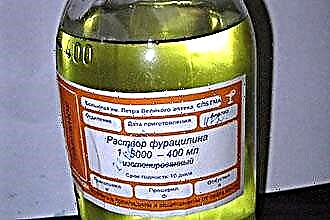During pregnancy, special attention is paid to the health of the woman, because the development of the fetus depends on it. Angina in pregnant women is considered a real test, as it carries a serious threat. Complications of the infectious process can manifest themselves as local reactions in the form of the formation of an abscess, phlegmon, the appearance of neck edema, and lead to severe organ damage, the development of sepsis.
 Among the most common complications of a general nature, it is worth highlighting:
Among the most common complications of a general nature, it is worth highlighting:
- renal dysfunction (glomerulonephritis, pyelonephritis);
- damage to the cardiac muscle (myocarditis, endocarditis, pericarditis, valvular defects);
- rheumatism with joint damage;
- septic condition with the formation of infectious foci of any localization (pneumonia).
To prevent the development of complications, an individual treatment plan is required. To do this, a pregnant woman should consult a doctor when the first signs of the disease appear:
- sore throat;
- malaise, decreased appetite;
- subfebrile hyperthermia.
At this stage, you can not resort to the use of antibacterial agents if a catarrhal form of angina is diagnosed. If on days 2-3 the fever reaches 39 degrees, there is a pronounced pain when swallowing, difficulty in opening the mouth, it is worth suspecting a follicular, lacunar form of tonsillitis.
In the catarrhal form, edematous, infiltrated tonsils are detected. As for other forms of angina, they are characterized by the appearance of purulent accumulations in the lacunae, the surface film. In the case of a necrotic form, the plaque becomes gray, dull. When trying to remove the film, an open wound with an uneven bottom remains.
Antibacterial drugs during pregnancy
 It is quite difficult to do without taking an antibacterial agent for angina. At the stage of a localized process (catarrhal form) without spreading the infection through the bloodstream, you can try to start treatment as quickly as possible, thereby preventing the progression of the disease. For this, a topical antibacterial drug is prescribed in the form of a spray (Bioparox). It does not have a systemic effect, therefore it is safest for pregnant women.
It is quite difficult to do without taking an antibacterial agent for angina. At the stage of a localized process (catarrhal form) without spreading the infection through the bloodstream, you can try to start treatment as quickly as possible, thereby preventing the progression of the disease. For this, a topical antibacterial drug is prescribed in the form of a spray (Bioparox). It does not have a systemic effect, therefore it is safest for pregnant women.
Purulent tonsillitis during pregnancy requires the mandatory prescription of an antibiotic in tablet form. The dosage and duration of the therapeutic course is determined exclusively by the doctor, taking into account the duration, the characteristics of the course of pregnancy, the severity of angina, the presence of concomitant diseases.
Approved antibacterial agents include:
- Flemoxin, Augmentin, Amoxiclav, which belong to the group of penicillins. They are most often prescribed to pregnant women, do not have a negative effect on the fetus.
- Cephalexin, Cefepim - a number of cephalosporins. They are prescribed for ineffectiveness, intolerance to penicillins. Not toxic to the fetus.
- Sumamed is used in the absence of the possibility of prescribing the above antibiotics. There is a low risk of side effects, however, in consultation with your doctor, it can be used.
The appointment of fluoroquinolones, aminoglycosides, tetracyclines, sulfonamides for 9 months is prohibited due to the high risk of severe complications from the fetus (impaired development, renal function, hearing, cartilage tissue, bone structures, liver).
Local treatment
 To combat the infectious pathogen in the lesion, gargle is prescribed, the use of a spray, resorption of tablets, lozenges:
To combat the infectious pathogen in the lesion, gargle is prescribed, the use of a spray, resorption of tablets, lozenges:
- Tablet forms - Lizobact, Chlorophyllipt, Faringosept contain an antiseptic component. Travisil belongs to herbal preparations, reduces the inflammatory process.
- Rinsing solutions - Chlorophyllipt, Miramistin, Furacilin, Rotokan, Chlorhexidine.
- Spray for irrigation of tonsils - Chlorophyllipt, Ingalipt.
To rinse your throat, you can prepare a solution of salt, soda (1 tsp each) in a glass of water. Rinsing should be repeated every 1.5 hours. In the intervals between them, the tonsils are irrigated or the tablets are absorbed. Chlorhexidine does not require dilution, it is enough to gargle for 30 seconds, after which do not eat for 2 hours. To prepare a rinse solution, dissolve 1 tsp. Rotokan in a glass of water.
Fighting the temperature
Pregnant women should remember that fever has a detrimental effect on the development of the fetus. The choice of antipyretics (antipyretics) is considered a difficult task that only a doctor can handle. Aspirin-based drugs are prohibited, however, Nurofen, Paracetamol is also not recommended for frequent use.
The most dangerous is hyperthermia from 4 to 14 weeks of pregnancy, when the risk of spontaneous abortion, fetal malformations (skeletal anomalies, damage to the nervous, cardiovascular systems) increases due to impaired protein synthesis.
After 14 weeks, fever contributes to hypoxia, impaired blood circulation in the placenta.
A woman needs to be wary of high fever, which is registered for several days, therefore, when the temperature rises above 38 (starting from the second trimester - above 37.5) degrees, antipyretics should be taken.
Initially, it is advisable to use non-drug methods, for example:
- refreshing shower;
- drinking plenty of fluids, which will help not only cope with hyperthermia, but also activate the elimination of toxins from the body, prevent dehydration;
- wiping the body with a vinegar solution diluted with water.
General recommendations
 To preserve and increase the internal forces of the body, strengthen immunity, pregnant women are advised to follow some rules:
To preserve and increase the internal forces of the body, strengthen immunity, pregnant women are advised to follow some rules:
- good nutrition (chicken broth, vegetable, fruit juices, compote, jelly). Spicy, hard, fatty, hot dishes, carbonated drinks, coffee are excluded.
- bed rest.
- adequate rest, sleep.
- airing the room.
At the same time, it is forbidden for a woman to:
- independently remove plaque from the surface of the tonsils;
- use hot compresses, foot baths, any procedures associated with high temperatures, including hot showers;
- strict diets;
- self-administration of antibacterial agents, premature termination of antibiotic therapy.
In some cases, pregnant women feel an improvement in their condition after a couple of days of taking an antibiotic and decide on their own to stop taking the medication. As a result, clinical symptoms return with greater severity, and the risk of secondary infection increases. In this case, the antibiotic used will no longer be effective, since resistance to it could have developed from the infectious pathogen. The doctor is required to select another antibacterial agent, taking into account the sensitivity of pathogenic microorganisms.
To avoid the progression of the disease, a repeated course of antibiotic therapy, it is not recommended to self-medicate.
Preventive actions
 Given the severity of the possible complications of angina, the prevention of angina during pregnancy should begin at the planning stage of conception. Compliance with the recommendations for 9 months will not only reduce the risk of developing angina, but also other diseases of infectious origin. All of these tips help to increase the immune defense.
Given the severity of the possible complications of angina, the prevention of angina during pregnancy should begin at the planning stage of conception. Compliance with the recommendations for 9 months will not only reduce the risk of developing angina, but also other diseases of infectious origin. All of these tips help to increase the immune defense.
- Healthy eating. To strengthen the immune system, a sufficient intake of proteins, fats, carbohydrates, vitamins and other useful elements is required.Every day a woman needs a tremendous amount of energy to ensure the normal life processes of her own body and fetus. Energy is produced by the breakdown of carbohydrates and fats. Insufficient intake of proteins leads to depletion, a decrease in the protein content in the bloodstream, which is accompanied by the release of the liquid component from the bloodstream. As a result of this, the pregnant woman develops swelling, malaise. Proteins are "building blocks", so their lack leads to serious consequences. Proteins become a source of energy in the absence of carbohydrates and fats.
Pregnant women are not allowed to adhere to strict diets, as the fetus may have a developmental delay.
In addition, vitamin nutrition supports the immune defense at a sufficient level.
- Regular airing of the room, wet cleaning. Given the likelihood of infection by airborne droplets, you should regularly ventilate the room, even in winter. The access of fresh air allows to provide the body of a woman, a fetus with a sufficient volume of oxygen. It is necessary for the normal functioning of cells, the development of organs and systems. Many of us have experienced manifestations of hypoxia (oxygen starvation) at least once. It is manifested by dizziness, headache, drowsiness, yawning in stuffy rooms, transport.
- Swimming, water aerobics is a great sport for women during pregnancy. In addition to strengthening the immune system, water procedures increase muscle tone, saturate the body with oxygen. However, it is worth remembering that the set of exercises is compiled exclusively by a specialist, taking into account the characteristics of the course, the duration of pregnancy, the presence of concomitant diseases.
 During the winter cold season, angina during pregnancy is quite common. To avoid the development of infectious diseases, it is necessary to dress warmly. A woman is advised to avoid drafts, hypothermia, getting wet in the rain. If earlier the body could independently cope with the influence of low temperatures, now there is a high risk of hypothermia.
During the winter cold season, angina during pregnancy is quite common. To avoid the development of infectious diseases, it is necessary to dress warmly. A woman is advised to avoid drafts, hypothermia, getting wet in the rain. If earlier the body could independently cope with the influence of low temperatures, now there is a high risk of hypothermia.- Compliance with the technology of cooking, it is not advisable to visit new places of public catering, in which you did not have to dine before. Due to the fact that the causative agent of sore throat can enter the body through the digestive tract with minced meat, dairy products, adherence to the rules of cooking is one of the important points of prevention. In addition, sufficient heat treatment of products prevents the development of not only tonsillitis, but also food toxicoinfection, enteritis.
- Compliance with hygiene rules, frequent hand washing. By maintaining cleanliness, a woman prevents infection of the body with many types of pathogenic microorganisms.
- Limited visits to crowded places, especially during an epidemic. If a relative living with you is sick with ARVI, a cold, it is recommended that he wear a medical mask to avoid infection of the pregnant woman.
- Outdoor walks (in summer before 10:00 and after 17:00, in winter - at any time). Hypoxia (insufficient supply of oxygen to the organs) and pregnancy are incompatible. The consequences of hypoxia for the fetus are quite severe (neurological disorders, intrauterine death), therefore, a woman is recommended to walk in the park area, rest in the forest, on the seashore, is especially useful.
With the onset of pregnancy, the body's need for oxygen increases due to an increase in metabolic requirements. Starting from the second trimester, oxygen consumption increases by 15%, and by the 9th month - by 30%.
If angina develops during pregnancy, we have figured out what is possible and what is not. Prevention (main points) is aimed at strengthening the immune system, but do not forget about chronic diseases. Against the background of hormonal changes, they can worsen, thereby making the body vulnerable to infection.
A woman is recommended at the stage of planning pregnancy to visit a doctor for the rehabilitation of infectious foci, for example, with chronic sinusitis, caries. When pathogenic pathogens are identified, for example, ureaplasma, herpes, human papillomavirus infection, their treatment is necessary. You should also conduct a prophylactic drug course of long-term inflammatory diseases, which periodically exacerbate (pyelonephritis, adnexitis).

 During the winter cold season, angina during pregnancy is quite common. To avoid the development of infectious diseases, it is necessary to dress warmly. A woman is advised to avoid drafts, hypothermia, getting wet in the rain. If earlier the body could independently cope with the influence of low temperatures, now there is a high risk of hypothermia.
During the winter cold season, angina during pregnancy is quite common. To avoid the development of infectious diseases, it is necessary to dress warmly. A woman is advised to avoid drafts, hypothermia, getting wet in the rain. If earlier the body could independently cope with the influence of low temperatures, now there is a high risk of hypothermia.

